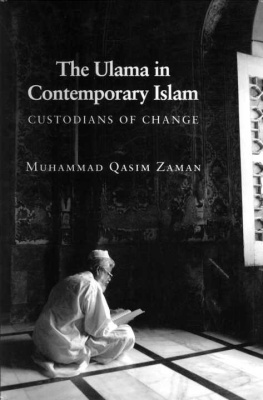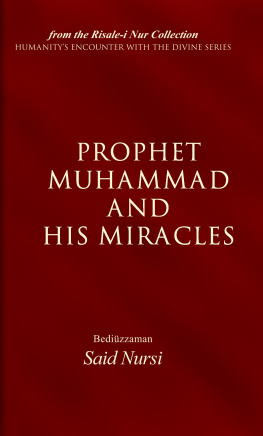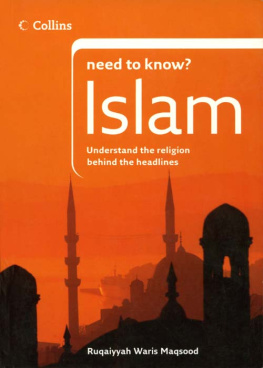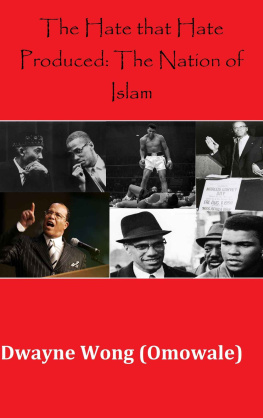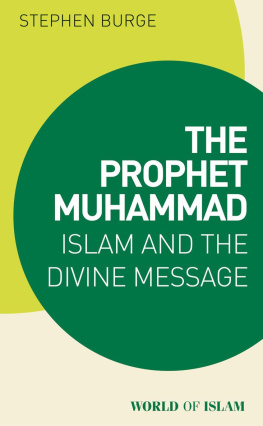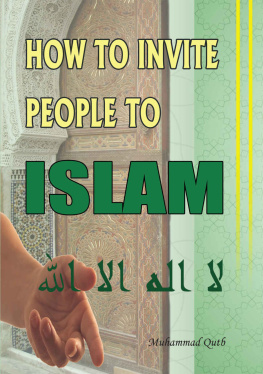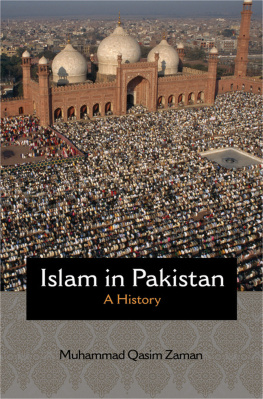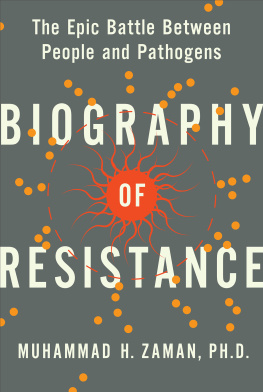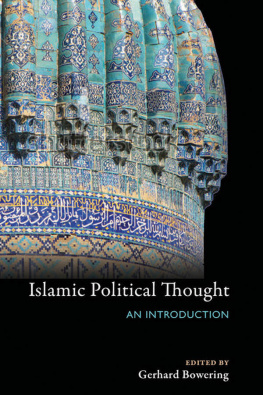Muhammad Qasim Zaman - The Ulama in Contemporary Islam: Custodians of Change
Here you can read online Muhammad Qasim Zaman - The Ulama in Contemporary Islam: Custodians of Change full text of the book (entire story) in english for free. Download pdf and epub, get meaning, cover and reviews about this ebook. year: 2010, publisher: Princeton University Press, genre: Religion. Description of the work, (preface) as well as reviews are available. Best literature library LitArk.com created for fans of good reading and offers a wide selection of genres:
Romance novel
Science fiction
Adventure
Detective
Science
History
Home and family
Prose
Art
Politics
Computer
Non-fiction
Religion
Business
Children
Humor
Choose a favorite category and find really read worthwhile books. Enjoy immersion in the world of imagination, feel the emotions of the characters or learn something new for yourself, make an fascinating discovery.
- Book:The Ulama in Contemporary Islam: Custodians of Change
- Author:
- Publisher:Princeton University Press
- Genre:
- Year:2010
- Rating:5 / 5
- Favourites:Add to favourites
- Your mark:
- 100
- 1
- 2
- 3
- 4
- 5
The Ulama in Contemporary Islam: Custodians of Change: summary, description and annotation
We offer to read an annotation, description, summary or preface (depends on what the author of the book "The Ulama in Contemporary Islam: Custodians of Change" wrote himself). If you haven't found the necessary information about the book — write in the comments, we will try to find it.
The Ulama in Contemporary Islam: Custodians of Change — read online for free the complete book (whole text) full work
Below is the text of the book, divided by pages. System saving the place of the last page read, allows you to conveniently read the book "The Ulama in Contemporary Islam: Custodians of Change" online for free, without having to search again every time where you left off. Put a bookmark, and you can go to the page where you finished reading at any time.
Font size:
Interval:
Bookmark:

PRINCETON STUDIES IN MUSLIM POLITICS
Dale F. Eickelman and James Piscatori, Editors
Diane Singerman, Avenues of Participation: Family, Politics, and Networks in Urban Quarters of Cairo
Tone Bringa, Being Muslim the Bosnian Way: Identity and Community in a Central Bosnian Village
Dale E Eickelman and James Piscatori, Muslim Politics
Bruce B. Lawrence, Shattering the Myth: Islam beyond Violence
Ziba Mir-Hosseini, Islam and Gender: The Religious Debate in Contemporary Iran
Robert W. Hefner, Civil Islam: Muslims and Democratization in Indonesia
Muhammad Qasim Zaman, The Ulama in Contemporary Islam: Custodians of Change
Muhammad Qasim Zaman
For Shaista, Zaynab, and Mustafa
I
II
III
IV
V
VI
Epilogue
 HROUGHOUT THE MUSLIM-MAJORITY world, advancing levels of education, greater ease of travel, and the rise of new communications media have contributed to the emergence of a public sphere-some call it the "street"-in which large numbers of people, and not just an educated, political, and economic elite, want a say in political and religious issues. The result has been increasing challenges to authoritarianism and fragmentation of authority.
HROUGHOUT THE MUSLIM-MAJORITY world, advancing levels of education, greater ease of travel, and the rise of new communications media have contributed to the emergence of a public sphere-some call it the "street"-in which large numbers of people, and not just an educated, political, and economic elite, want a say in political and religious issues. The result has been increasing challenges to authoritarianism and fragmentation of authority.
Many of the emerging new voices and the leaders of such movements claim to interpret basic religious texts, and they work in local or transnational contexts to shape religious movements intended to improve the human condition. However, like their counterparts in Poland's solidarity movement and the liberation theology movements in Latin America, these new intellectuals and interpreters often lack theological and philosophical sophistication. Such leaders have often succeeded in capturing the imagination of large numbers of people, nonetheless.
Other spokespersons represent a darker side of the fragmentation of authority. Usama bin Laden and his associates in al-Qa`ida, including the Egyptian physician Ayman al-Zawahiri, are no match for Thomas Hobbes, Martin Heidegger, or Muhammad Iqbal. They have, however, emerged as the leaders of a tiny but lethal minority, and their interpretations of religious texts are heard throughout the world.
Fascination with understanding these new interpreters has deflected attention from the role in the Muslim world of the `ulama, religious scholars with intensive training in religious texts and jurisprudence who have long sustained widespread respect as the guardians of the Islamic religious tradition. Such was their influence that successions of colonial regimes, including the British, French, and Dutch, vigorously sought to circumscribe their influence and curtail financial support for the institutions of religious learning in which they were trained. Autocrats throughout the Middle East, Central Asia, and Southeast Asia likewise sought to silence or coopt them.
The `ulama, often misleadingly portrayed as guardians of tradition who play a diminishing role in modern societies and who endeavor to ignore or disqualify anything new, nonetheless play a vital, albeit changing, role in the societies in which they participate. The Ulama in Contemporary Islam: Custodians of Change offers a highly readable assessment of that role. Zaman focuses intensively on the role of the `ulama in British India and its successor independent states, India and Pakistan, but he also compares their changing role in South Asia with that of their counterparts in Iran, Saudi Arabia, Egypt, and elsewhere. He shows that the religious and social views of the `ulama have as much disparity as the views of religious modernists, Islamists, and secularists. He also demonstrates how Islamic tradition in general, and interpretations of Islamic law, the shari`a, in particular, are a process shaped through ongoing discussion and debate, rather than a fixed content.
On the shifts in the context of `Mama discourse and practice during precolonial, colonial, and postcolonial rule and after the introduction of print technology, Zaman suggests that the critical question is not whether the authority of the `Mama has increased or decreased, but "how that authority is constructed, argued, put on display, and constantly defended." Here as elsewhere, Zaman raises seminal questions that offer fresh perspectives on Islam in South Asia and on ideas of religious authority elsewhere in the Muslim world and in other religious traditions.
The Ulama in Contemporary Islam is the first work to look comprehensively at the `ulama and their institutions of learning in both the colonial and postcolonial contexts, as well as at the subtle and nuanced relationships between what the 'ulama say and do and the changing contexts of religiopolitical activism. In colonial India, the British saw precolonial Islamic and Hindu law as "uncertain, unsystematic, and arbitrary"-a characterization that might be equally applied to British colonial ruleso they sought to codify it. The results often were ironic. As Zaman shows, the `ulama altered sharl'a rules even after British-inspired codification. They also managed to subtly shape British efforts to "reform" (which in practice meant to control and regulate) the system of madrasa (mosque university) education. A major consequence of British rule was to redefine the function of the Varna, creating the idea of religion as a "specialty" in which the `ulama had a particular authority in linking Islam's past with the present and increasingly contributing to senses of community that transcend local social contexts.
Earlier scholars have suggested that the `ulama turned away from issues of state and society during the colonial period and shifted their focus to personal moral qualities. The Ulama in Contemporary Islam indicates how this interpretation has deflected attention away from the growth of radical sectarianism that has characterized Pakistani religious life in the last three decades and from the rise of such movements as the Taliban in Afghanistan. As Zaman indicates, religiously sanctioned violence and the growing lists of martyrs contribute as much-though in a negative wayto a sense of community in both rural and urban contexts as do mosques, religious schooling, religious texts, and shared social background and economic interests.
This highly original book offers fresh insight into the role of Islamic religious scholars in the modern world. It will shape for years to come how we understand religious tradition, sectarianism, religious knowledge and its carriers, and the diverse ways in which religious arguments are created and disseminated. Zaman's accessible style and persuasive comparison of religious developments in South Asia with other parts of the Muslim world make this book a significant port of entry for anyone wishing to understand Islamic religious tradition and the modern social and political contexts in which it is elaborated and reproduced.
Font size:
Interval:
Bookmark:
Similar books «The Ulama in Contemporary Islam: Custodians of Change»
Look at similar books to The Ulama in Contemporary Islam: Custodians of Change. We have selected literature similar in name and meaning in the hope of providing readers with more options to find new, interesting, not yet read works.
Discussion, reviews of the book The Ulama in Contemporary Islam: Custodians of Change and just readers' own opinions. Leave your comments, write what you think about the work, its meaning or the main characters. Specify what exactly you liked and what you didn't like, and why you think so.

